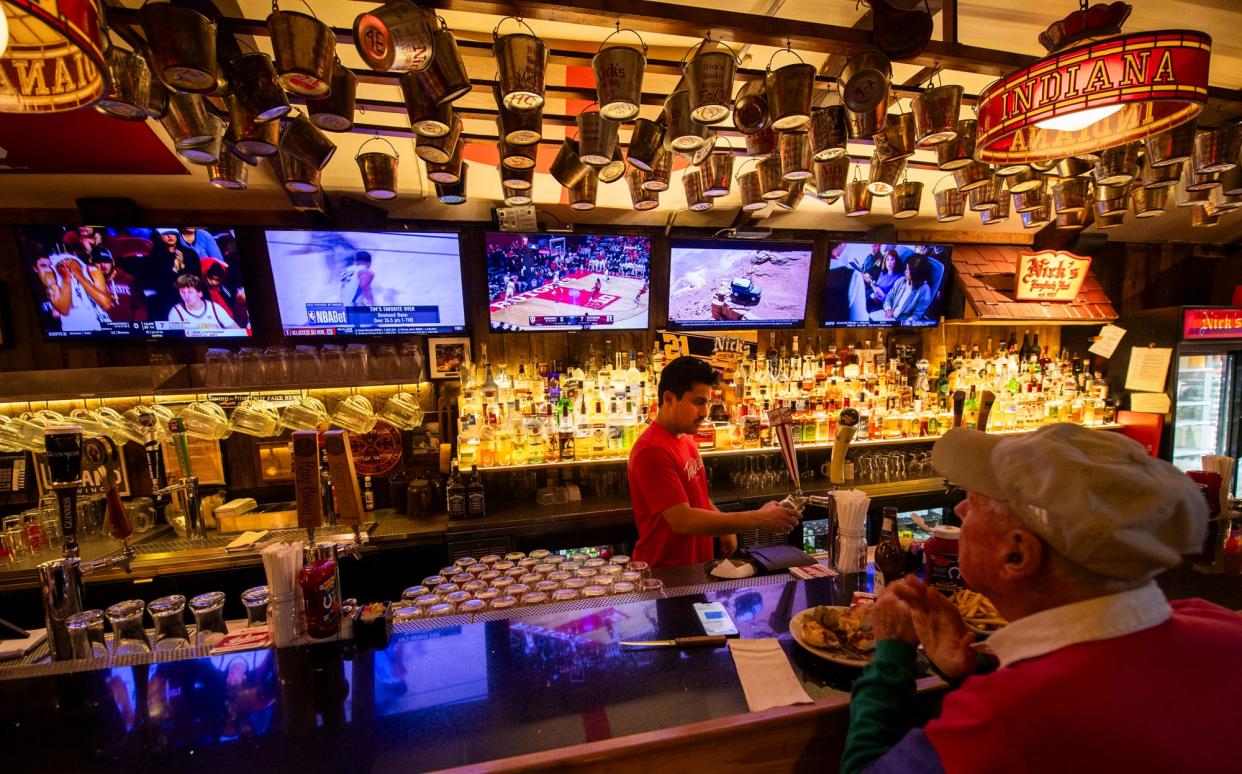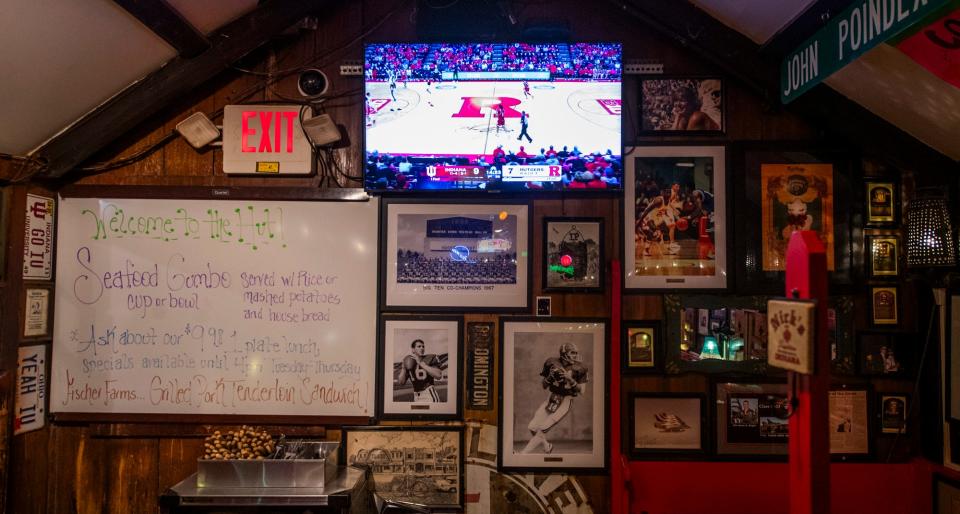Bloomington's city council passed a closed captioning law. What you need to know.

A new law in Bloomington will require bars, doctor’s offices and other public places to turn on closed captioning on their TV sets, primarily to make the community more inclusive for people with hearing loss.
An owner and a manager of two local bars said they do not think the requirement would cause any problems, but two local bar patrons had mixed reactions.
The law, passed by the city council last month, will take effect next January, in part to give the city time to inform the affected “places of public accommodation,” which also include restaurants, big-box stores, banks, hotels, bowling alleys, pool halls, hospitals and hair salons.
Those establishments will have to turn on closed captioning during normal business hours — but not after hours if only employees are present.
Michael Shermis, special projects coordinator with the city’s Community and Family Resources Department, said the law came about because he was approached by Holly Elkins, member/representative of the Indiana Association of the Deaf. Shermis connected Elkins with the city council, and council member Stephen Volan, whose term ended Dec. 31, sponsored the ordinance. The council adopted it unanimously. Then-Mayor John Hamilton signed it into law.
New appointments: Bloomington mayor-elect Kerry Thomson appoints chief of staff, city attorney
Volan said in a memo to council members that while captioning “may seem to the causal observer like a requirement too trivial to be deserving of an ordinance, it’s significant to those with hearing loss. It removes a barrier, relieves an obligation to request accommodation to be treated equally in public, and relieves the indignity of having to reveal, explain or justify the need for accommodation.”
If two or more TVs are displaying the same channel or program, only one of every five TVs (and two of every 10, etc.) must have closed captioning enabled. TVs that are turned off do not have to be turned on to comply with the law. Local businesses do not have to provide a TV and do not have to upgrade to a new TV if the current one is incapable of displaying captions.
While cities such as Boston, San Francisco and Ann Arbor, Michigan, have adopted similar legislation and the state of Indiana considered a similar law last year, Elkins said via email that Bloomington is the first city in Indiana to adopt such a law, making it a “historic moment for both residents and visitors.”

Elkins said that for the 16% of the world’s population with a disability, “sincere and genuine representation matters a great deal in our communities, educational institutions and workplaces across economic, social and political levels of policymaking.”
While the Americans with Disabilities Act requires that places of public accommodation must turn on closed captioning upon request, the Bloomington law requires captioning to be activated as a default and provides a “more equitable remedy,” Elkins said.
“Bloomington residents with hearing loss, learning disabilities and intellectual disabilities alongside with older adults, veterans and emergent learners will all be on a more equitable level as everyone else when accessing information by watching the news, sports, ‘Jeopardy’, and any other regular TV programs with closed captions,” she said.
Recent sports news: Indiana basketball guard Xavier Johnson ejected against Rutgers
Elkins said surveys also indicate that people without hearing loss increasingly turn on subtitles/closed captioning. She said, for example, that more than half of millennials and generation Z prefer watching TV with subtitles/captions, according to a report from YPulse TV.
“The TikTok generation has helped normalize subtitles (and captions,)” Elkins said.
“The best aspect of the Bloomington captioning ordinance is it proactively promotes universal accessibility for a broad range of groups across Bloomington,” she said. “A good illustration of one of Bloomington’s universal accessibility practices is its city-wide sidewalk program. Over the past several years, by widening sidewalks and inserting curb cuts across the town, not only people with mobility issues have benefited from these improvements, but it also benefits many other people who ride bikes, going outside to jog/run, or pushing a baby stroller as well with many older adults who may have trouble walking.”
Bloomington businesses and patrons react to closed captions law

Representatives of two local businesses said they do not have a problem with the law.
Gregg Rago, owner of Nick’s English Hut, at 423 E. Kirkwood Ave., said the new law is no big deal.
“I turn on closed captioning all the time,” he said.
Jadah Shroads, manager on duty at Crazy Horse, at 214 W. Kirkwood Ave., said the tavern turns on sound only for Indiana University and Indianapolis Colts games. Otherwise the bar plays music, and TVs are muted.
“I don’t imagine (turning on captions) would become a problem,” she said.
Two patrons at Nick’s had different takes on the law.
Jake Pitcher, 58, a Bloomington native, said he doesn’t think the government ought to be able to require bar owners to turn on closed captions.
Pitcher comes to the bar frequently, in part to support his friend, the owner. A photo of Pitcher, in his younger days, hangs on the wall in the bar area.
Pitcher said the captions would cover too much of the screen, especially during sports, when it might obscure scores and the ticker.
“It just interferes. You can’t see the full picture,” Pitcher said.
Ian Girdley, 45, of Bloomington, said he has worked at two bars that use closed captioning all the time anyway, so requiring closed captions to be turned on wouldn’t bother him.
And even if the captions obscure the score during a game, they would do so only for a short period, which, he said, means the captions would be only a minor inconvenience.
Girdley said people should accept a minor inconvenience if it helps other people a lot.
“Basic humanity,” he said.
The law includes no language about fines. Violations will be handled on a complaint basis. People can file a complaint with the Bloomington/Monroe County Human Rights Commission.
Shermis said the city’s response to a complaint will focus on education and making sure the establishments that are violating the law are aware of their obligations.
Boris Ladwig can be reached at bladwig@heraldt.com.
This article originally appeared on The Herald-Times: How Bloomington's closed captioning law might affect you

